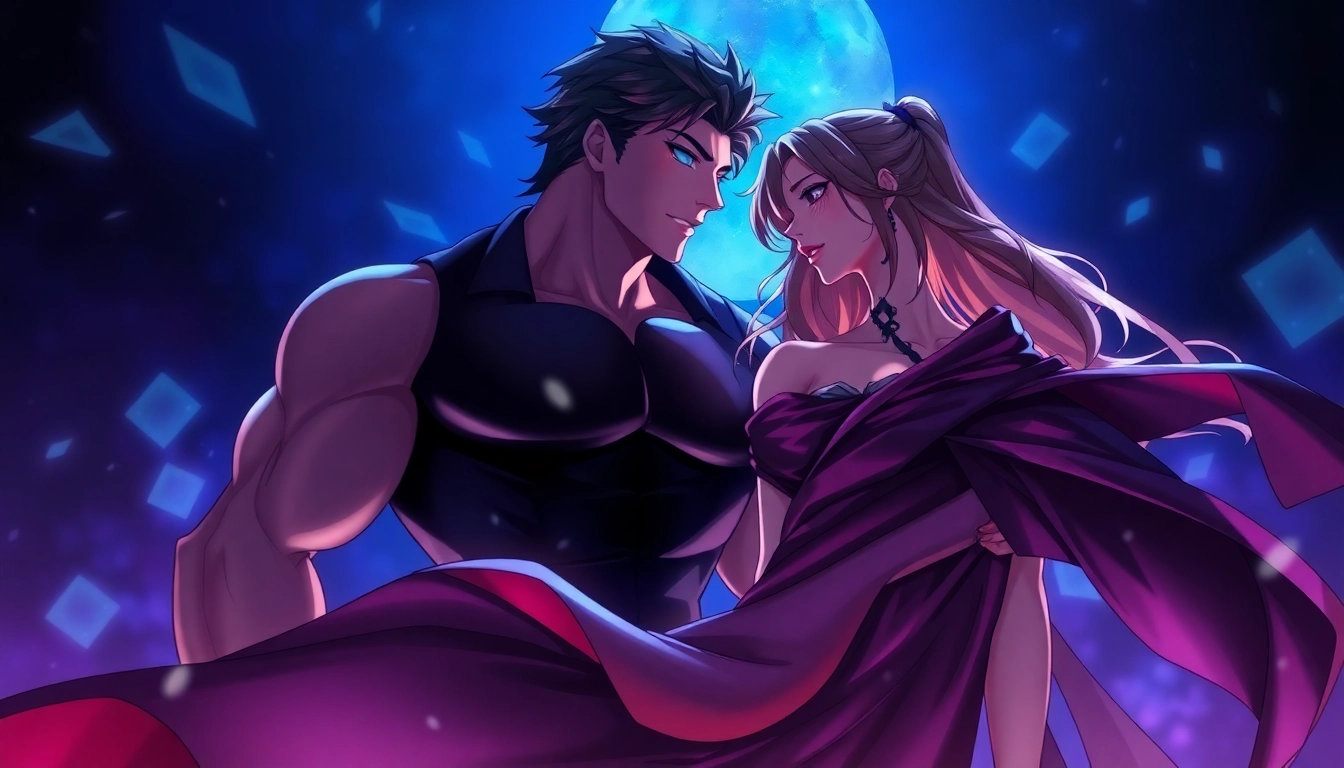Understanding Omegaverse: Origins, Dynamics, and Cultural Significance
The omegaverse is a fascinating and complex subgenre of speculative fiction that has gained substantial popularity within various fan communities. Originating in fanfiction circles, particularly within the BDSM and LGBTQ+ fandoms, it has evolved into a unique universe with its own set of rules, social structures, and character dynamics. This article aims to provide an in-depth exploration of the omegaverse, covering its origins, core themes, character roles, cultural impact, and future potential. Whether you’re a newcomer seeking to understand the basics or a seasoned fan interested in the deeper intricacies, this comprehensive guide offers valuable insights into this intriguing genre.
Origins and Historical Context of Omegaverse
The Birth of a Subgenre
The origins of the omegaverse can be traced back to early 2010s fanfiction communities, particularly those centered around popular media franchises like Supernatural and Twilight. It emerged as a creative response to existing narratives, allowing writers to explore alternative social hierarchies and biological differences. The term “omegaverse” itself is derived from the concept of omega characters, who are typically characterized by specific traits and social roles that differ from the dominant alpha and neutral beta groups.
Evolution and Spread
Initially confined to fanfiction sites like Archive of Our Own and FanFiction.net, omegaverse stories quickly gained traction due to their compelling world-building and emphasis on character development. The genre’s popularity was amplified by its flexibility—writers could adapt the rules to fit their own narratives, leading to a diverse array of stories spanning romance, action, and even political intrigue. Over time, omegaverse expanded beyond fanfiction into original works, webcomics, and even mainstream publishing, cementing its place as a significant subgenre of speculative fiction.
Core Themes and Elements of Omegaverse Fiction
Biological and Social Structures
At its core, omegaverse fiction revolves around a biological hierarchy that influences social interactions and relationships. The universe is often divided into three primary roles:
- Alphas: Typically depicted as dominant, strong, and protective figures with heightened physical and emotional traits. They often serve as leaders or protectors and are biologically predisposed to certain behaviors, such as territoriality and aggression.
- Omegas: Usually characterized by submissiveness, nurturing qualities, and heightened sensitivity. Omegas often have unique biological features, such as scent markers or heat cycles, which influence their interactions.
- Betas: Considered neutral or balanced, betas do not possess the extreme traits of alphas or omegas. They often function as mediators or regular members of society.
Thematic Focus: Power Dynamics and Consent
One of the defining features of omegaverse stories is the exploration of power dynamics—often intertwined with themes of consent, trust, and emotional vulnerability. While some narratives emphasize intense, passionate relationships that challenge traditional boundaries, others focus on the importance of mutual respect and understanding within the biological imperatives of the universe. The genre’s flexibility allows for stories ranging from explicit romantic encounters to nuanced explorations of societal roles and personal identity.
Unique Traits and Tropes
Omegaverse fiction incorporates distinct tropes and motifs to deepen storytelling, such as:
- Heat Cycles: Periods during which omegas are biologically inclined toward mating, often leading to heightened emotional and physical responses.
- Scent Marking and Pheromones: Biological cues that influence attraction and social hierarchy, often playing a crucial role in relationship development.
- Bonding and Mating Rituals: Ritualistic or biological processes that establish deep connections between characters, sometimes involving a form of soul-binding or lifelong commitment.
- Social Stratification: Rigid hierarchies that dictate interactions, status, and power within the universe, often mirroring or exaggerating real-world social issues.
Character Roles and Dynamics
Alpha Characters: Leaders and Protectors
Alphas are typically portrayed as assertive, confident, and physically imposing. They often serve as the central figure in romantic or hierarchical plots, embodying qualities of strength and authority. Their biological predispositions include heightened senses, aggressive tendencies, and a natural inclination toward leadership. However, many stories also delve into their vulnerabilities, exploring themes of responsibility and emotional openness. The alpha’s role often involves navigating complex relationships with omegas, balancing dominance with care.
Omega Characters: Nurturers and Submissives
Omegas are characterized by their nurturing qualities, emotional depth, and often submissive tendencies. Their biological traits, such as scent marking and heat cycles, influence their interactions and relationships. While they may be depicted as vulnerable, many stories emphasize their strength in emotional resilience and independence. Omegas often challenge stereotypical roles, asserting their agency within the constraints of their biological and societal roles.
Beta Characters: The Middle Ground
Betas serve as the neutral or balanced group within the omegaverse universe. They are often depicted as mediators, friends, or secondary characters who do not possess the extreme traits of alphas or omegas. Their role provides a realistic grounding to the universe, offering perspectives that bridge the hierarchical divide. In some narratives, betas may develop their own unique arcs, exploring themes of identity and societal expectations.
Group Dynamics and Relationships
The omegaverse also frequently explores group dynamics, including multi-character group chats or relationships involving multiple alphas and omegas. These narratives examine the complexities of consent, jealousy, loyalty, and emotional growth. The interactions within these groups often mirror real-world social complexities, making the genre both engaging and thought-provoking.
Cultural Significance and Popularity in Fan Communities
The Rise of Omegaverse in Fan Culture
The omegaverse’s popularity can be attributed to its versatility and the freedom it offers writers and fans to explore complex themes. It provides a framework for examining gender roles, societal structures, and personal identity in a speculative context. Within fan communities, omegaverse stories foster discussions about consent, power, and societal expectations, often serving as a mirror to real-world issues.
Community Engagement and Creative Expression
Fanfiction writers and artists use the omegaverse to craft stories that challenge norms, explore taboo topics, or simply entertain with compelling character interactions. The genre encourages creative experimentation—writers often create detailed backstories, develop complex characters, and incorporate diverse cultural elements. The communal nature of fan platforms facilitates feedback, collaboration, and the sharing of innovative ideas.
Impact on Mainstream Media and Literature
While initially confined to fanfiction, the omegaverse has begun to influence mainstream media, with some independent authors publishing original works set within similar worlds. Webcomics, novels, and even animation projects are increasingly exploring omegaverse themes, signaling its potential to evolve beyond niche communities. Its cultural impact lies in its capacity to challenge traditional narratives about gender, sexuality, and hierarchy, fostering greater acceptance of diverse identities.
Influence on Creative Writing and Roleplay
Enhancing Narrative Depth
The omegaverse provides writers with a rich toolkit for building layered stories. The biological and social rules create natural conflicts and alliances, fostering deep emotional engagement. Writers can craft stories that blend romance, action, and political intrigue, all within a framework that emphasizes character growth and societal critique.
Roleplaying and Interactive Experiences
For roleplayers, platforms like CrushOn AI offer innovative ways to engage with omegaverse themes. Through customizable AI characters, users can simulate interactions with alphas, omegas, and betas, exploring relationship dynamics or developing storylines in a safe, controlled environment. Features like character personality customization, contextual memory, and group chat functionality make roleplay immersive and dynamic.
Creative Roleplay with CrushOn AI
CrushOn AI’s chatbot platform allows users to create and interact with AI characters tailored to specific omegaverse archetypes. Users can choose from a library of pre-made characters or craft their own, defining traits, backstories, and preferences. The platform’s advanced language models, like GPT-4o mini and Claude 3.5 Sonnet, generate natural, context-aware responses, making roleplay sessions feel authentic and engaging. The memory system ensures ongoing continuity across sessions, enabling long-term storytelling and relationship development.
Addressing Ethical Considerations and Boundaries
Consent and Respect in Fiction and Roleplay
Given the often intense and intimate nature of omegaverse stories, discussions around consent and boundaries are paramount. While fictional worlds can explore taboo topics, creators and participants should maintain awareness of ethical considerations, ensuring that narratives and interactions respect personal limits and promote healthy representations of relationships.
Community Guidelines and Responsible Content Creation
Fan communities and platforms like CrushOn AI emphasize responsible content creation, encouraging users to avoid glorifying non-consensual acts or harmful stereotypes. Clear boundaries, open communication, and mutual respect underpin healthy engagement with omegaverse content, whether in writing or roleplay scenarios.
The Future of Omegaverse: Trends and Innovations
Expanding Narrative Boundaries
As the genre continues to evolve, creators are pushing boundaries by integrating diverse cultural perspectives, exploring non-traditional relationship structures, and incorporating contemporary social issues. This expansion enriches the genre’s depth and relevance, appealing to broader audiences.
Technological Advancements and AI Roleplay
Advances in AI technology, exemplified by platforms like CrushOn AI, are revolutionizing interactive storytelling. The ability to create highly personalized characters and maintain conversation continuity opens new horizons for immersive roleplay experiences. Future developments may include more sophisticated emotional modeling, multi-modal interactions , and enhanced community engagement tools.
Potential Challenges and Opportunities
Despite its growth, the omegaverse genre faces challenges related to ethical representation, cultural sensitivity, and the risk of perpetuating stereotypes. Responsible creators and platforms must navigate these issues carefully. Conversely, these challenges also present opportunities for education, awareness, and fostering inclusive storytelling that respects diverse identities and experiences.
Conclusion: Embracing the Complexity of Omegaverse
The omegaverse is much more than a niche fanfiction genre; it is a dynamic universe that explores themes of hierarchy, identity, power, and intimacy through a speculative lens. Its rich world-building, complex character roles, and cultural significance make it a compelling subject for both creators and fans alike. As technology advances and communities grow more conscious of ethical considerations, the potential for innovative storytelling within the omegaverse remains vast.
For those interested in delving deeper into this genre, understanding its origins, themes, and societal impact offers valuable insight into how fiction can reflect and challenge real-world dynamics. Whether through writing, roleplay, or academic exploration, the omegaverse continues to inspire and evolve, inviting everyone to explore the fascinating interplay of biology, society, and personal connection in a universe of endless possibilities.
Further Reading and Resources
To learn more about the omegaverse, its development, and its influence on contemporary storytelling, visit the Omegaverse Wiki. Engaging with fan communities, reading diverse works, and experimenting with roleplay platforms like CrushOn AI can deepen your understanding and appreciation of this compelling genre.
Understanding Omegaverse: Origins, Dynamics, and Cultural Impact
In summary, the omegaverse is a multifaceted universe that blends biological speculation with social commentary, creating a rich tapestry for storytelling and roleplay. Its evolution from niche fanfiction to a mainstream influence underscores its significance as a cultural phenomenon. As we continue to explore and create within this genre, the omegaverse offers a unique lens through which to examine human relationships, societal structures, and the enduring power of imagination.





